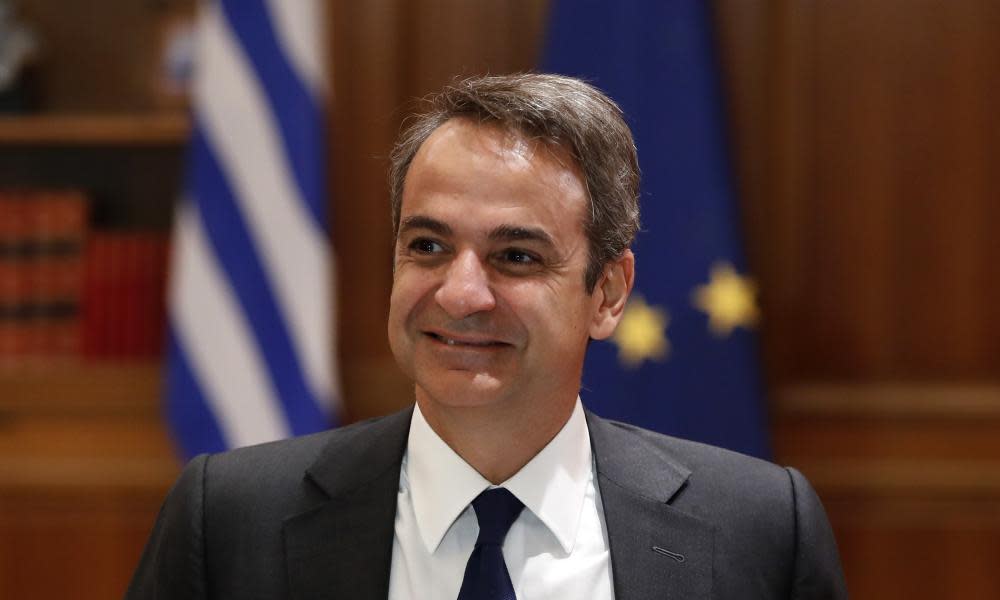Two men suspected of planning Athens attacks remanded in custody

Two suspected urban guerrillas allegedly linked to planned attacks on foreign embassies in Athens have been remanded in custody after a high profile anti-terror operation in the Greek capital.
The two men, both in their 40s, were jailed after appearing before a public magistrate charged with membership of the terror group, Revolutionary Self Defense, which has claimed credit for assaults on both the French and Mexican embassies. Under Greek law they can be detained for up to 18 months pending trial.
Greece has a tradition of urban guerrilla warfare that dates to the armed resistance against the hated colonels’ regime that held sway between 1967 and 1974.
The Marxist-Leninist group, 17 November – whose first victim in 1974 was the CIA’s Athens station chief, Richard Welch – operated with impunity for close to three decades. After scores of attacks and a death toll that eventually reached 23, until it was eventually dismantled 17 years ago.
The country’s long-running economic crisis has again produced fertile ground for political radicalism to flourish on both the left and right.
On Tuesday, hooded supporters of the suspected terrorists gathered outside the court complex jeering and clashing with police who responded with rounds of teargas as the men emerged under armed guard from the building.
Both denied accusations of engaging in terrorist acts and illegal possession of firearms and explosives, lawyers said. A woman described as being the wife of one of the suspects will appear before a magistrate next week.
This weekend, the Hellenic police’s counter-terrorism force said it had foiled another potentially deadly attack that was possibly planned to take place ahead of the anniversary marking the 17 November Athens Polytechnic student uprising in 1973 that led to the fall of the colonels.
Revolutionary Self Defense has also claimed responsibility for two attacks on the socialist Pasok party headquarters in Athens, in which a police officer was wounded.
“Fortunately we stopped them in time,” said Lefteris Hardalias, the counter-terror unit’s chief, unveiling an enormous cache of weapons and powerful explosives discovered during the weekend operation.
The armoury, found in the home of another male suspect who has yet to be arrested, included grenades, five Kalashnikov assault rifles, a submachine gun, detonators, pistols, dynamite and TNT.
“What is frightening is the amount of explosives they possessed,” Hardalias told reporters following raids on 13 homes. Forensic research proved that one of the assault rifles had been used in a robbery on a betting shop in Athens’s northern suburb of Cholargos last month, he said. Police had finally been led to the group via DNA blood samples after one of the suspects accidentally shot himself in the leg during the raid on the shop.
The prime minister, Kyriakos Mitsotakis, called the operation a “very big success” pledging his four-month-old centre right government would crack down on militant groups that pose a danger to public security.
“A very dangerous operational branch of neo-terrorism in Greece has been dismantled,” the leader told Skai TV ahead of the court hearing. “Let me repeat, for one more time, our commitment to put a definitive and irreversible end to the problem of domestic terrorism.”
Mitsotakis’s brother-in-law, Pavlos Bakoyannis, a journalist turned conservative MP, was among those assassinated by the now defunct 17 November.
But Mary Bossi, professor of international security at Piraeus University said there was a vast pool of potential recruits for a new generation of militancy fuelled by years of grinding recession.
“There is a huge pool of angry people out there,” she said. “And a lot of women, too, in these groups. Eradication won’t be easy. Leaders may be arrested but its only time before others regroup.”
Revolutionary Self Defense, whose gunmen proclaimed responsibility for lobbing a hand grenade at the French embassy from a moving motorbike in 2016 – wounding a guard in the process – were reminiscent of the nihilist movement of the late 19th and early 20th centuries, she said.
“Careful examination of the group’s proclamations has shown that they don’t care what society thinks,” she added. “That makes them very capable of being lethal.”

